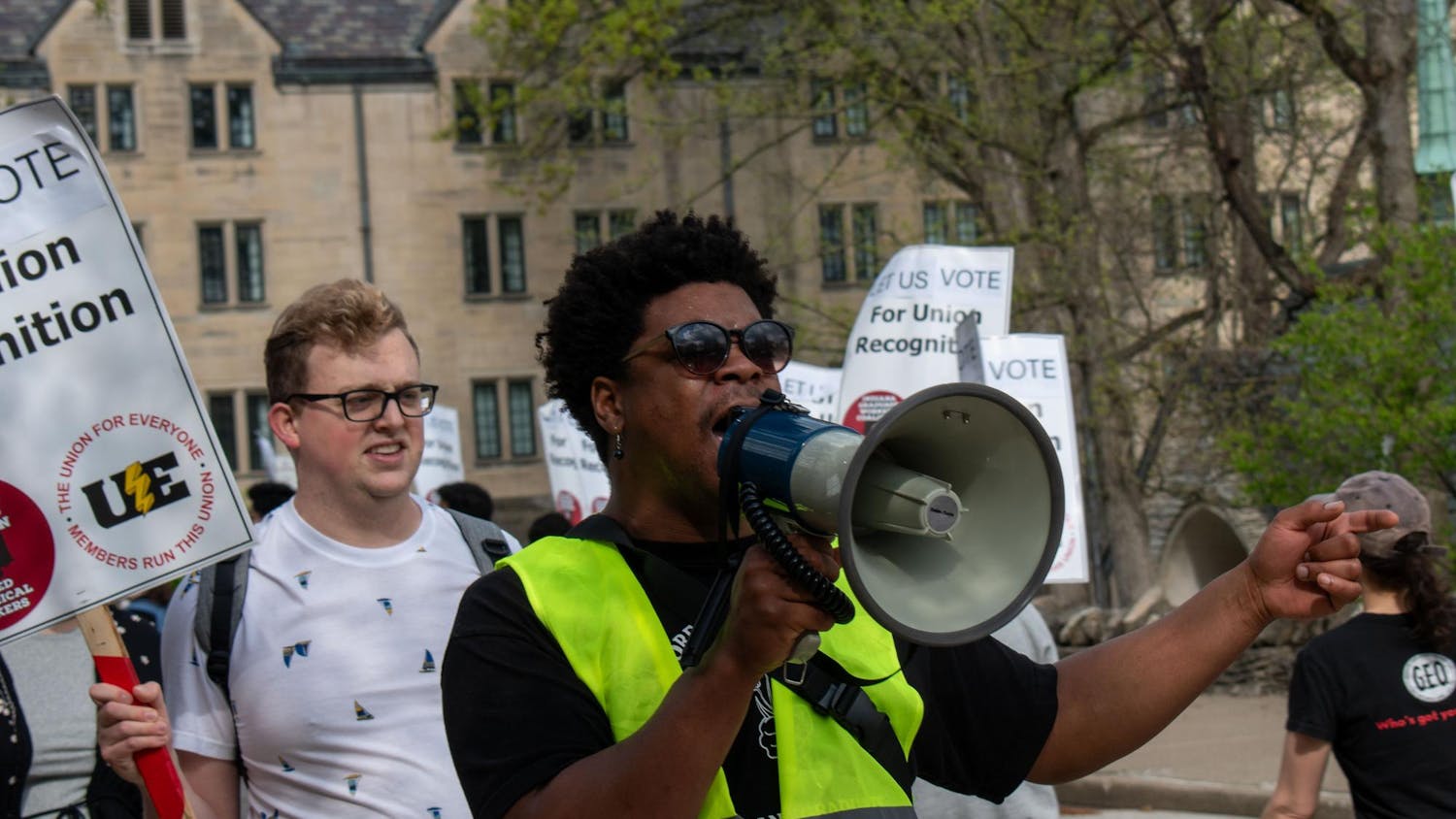Whether people use it to binge Netflix streams or order Christmas presents on Amazon, the internet has freed up time and energy for the entire economy.
However, associate professor of informatics Nathan Ensmenger said people should realize these virtual services, part of a larger digital economy, can use resources and hurt the environment through the infrastructure that supports them.
The data warehouses and centers behind these virtual commodities, known as the Cloud, leave a carbon footprint on the planet much like a factory would.
“In some ways, the Cloud is more sustainable, but that’s like saying a Honda Civic is better than a Humvee,” Ensmenger said,
While it may be a step in the right direction, moving traditional services, such as shopping in a store, to the digital realm has hidden costs.
Getting a ride through Uber or purchasing goods with Bitcoin could even avoid issues in infrastructure and waste production.
However, the material elements of the digital economy are often ignored, Ensmenger said.
If Cloud computing were a country, it would be the sixth largest energy consumer in the world, Ensmenger said.
The production of a single desktop computer takes 240 kilograms of fossil fuels, 22 kilograms of chemicals and 1,500 kilograms of water, according to a recent United Nations study.
Bitcoin is computationally intensive, which can make it inefficient, Ensmenger said.
The electric car company Tesla proposed to build a lithium gigafactory in Nevada to create batteries for its technology.
“The people of Nevada pay $50 billion to fund this,” Ensmenger said.
People think Tesla is completely environmentally-friendly, but it still mines materials out of the ground in ways that can hurt the environment, Ensmenger said.
Similarly, Apple’s shifts to renewable technology are, in some ways, shifting from digging up coal to digging up other metals, Ensmenger said.
The company’s shift to rare earth metals from China and other so-called conflict minerals, such as cobalt, still rely on what the Earth can produce.
The controversy surrounding Apple’s Foxconn facility, with hazardous, polluted working conditions, shows the cost of technology hasn’t disappeared; rather, it has shifted elsewhere, Ensmenger said.
Tracing the history of the Silicon Valley to the immigrant labor between California and Mexico, Ensmenger pointed out similarities between the formation of the digital economy and other industries, such as the automobile or steel industries.
The rise of computers has claimed positive technological progress without the environmental effects of automobile or nuclear energy, Ensmenger said.
“A service on a device does not live in a vacuum,” said informatics professor Eli Blevis, “Infrastructural support is required to create the service, to create or source associated content supplied through the service and to deliver the service over time.”
The placelessness central to the digital economy might seem invisible, but it’s employed in the interests of particular people, Ensmenger said.
Blevis suggested changes in energy use guidelines to account for the infrastructure of these digital services.
Businesses should regulate the environmental effects of their work, Blevis said.
This will help people determine how human needs are related to technology and, in turn, can protect planetary boundaries, Blevis said.
People have embraced the idea that Silicon Valley can transform them from workers into little business, Ensmenger said.
“Uber can employ hundreds and thousands of people but claim they’re not employees and claim exemptions from labor laws, equal employment regulations and social security taxes,” Ensmenger said.
Separating the service from the infrastructure has lead to these misunderstandings about the digital economy, Ensmenger said.
“Silicon Valley wants to emphasize the discontinuities between its economy and a long debate about industrial capitalism,” Ensmenger said.
Ensmenger said these issues bring into question what an economy is.
“Suddenly this idea that we were once in an industrial economy and now we’re in a post-industrial economy doesn’t seem so plausible,” Ensmenger said.




